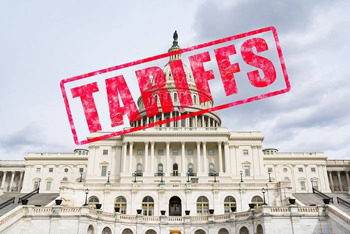By SEMA Washington, D.C., Staff
 The U.S. Department of Commerce (DOC) may impose global tariffs of up to 25% on all automobiles and auto parts imported into the United States. |
President Trump has directed the U.S. Department of Commerce (DOC) to investigate whether imported automobiles and auto parts pose a threat to America’s national security.
The DOC will issue its findings and recommendations for presidential actions, if any. Such a recommendation could include imposing global tariffs of up to 25% on all automobiles and auto parts imported into the United States. The tariffs could take effect prior to the mid-term elections.
Tariffs on imported cars and auto parts is a real possibility, given the Trump Administration’s aggressive use of trade laws, including “Section 232” covering national security, in an effort to reduce imports affecting strategic industries. The United States has already imposed global tariffs on steel (25%) and aluminum (10%) from most countries, and 25% tariffs are set to take effect as early as July 2 on $50 billion worth of products imported from China.
The 232 investigation into automobiles and auto parts applies to all types of cars and parts, including new cars, classic cars, OEM parts and specialty auto parts. The move would directly affect all U.S. automakers and parts suppliers who use imported components, as well as importers of cars, trucks and SUVs.
While SEMA supports taking actions against unfair trade practices, such as enforcing trade remedies against subsidies and dumping, SEMA opposes the current tariffs on steel and aluminum and the threatened tariffs on automobiles and auto parts. Tariffs are a blunt instrument for dealing with trade disputes, and often have unexpected and unwelcome consequences. Beyond imposing a tax on trade, tariffs create downstream price spikes, hoarding, marketplace confusion and supply-chain disruption. Rather than impose tariffs that hurt U.S. business and consumers, SEMA urges U.S. leaders to engage our allies to find constructive solutions to address unfair trade practices.
Click here to submit comments (due June 29).
Questions? Contact Stuart Gosswein at stuartg@sema.org.





